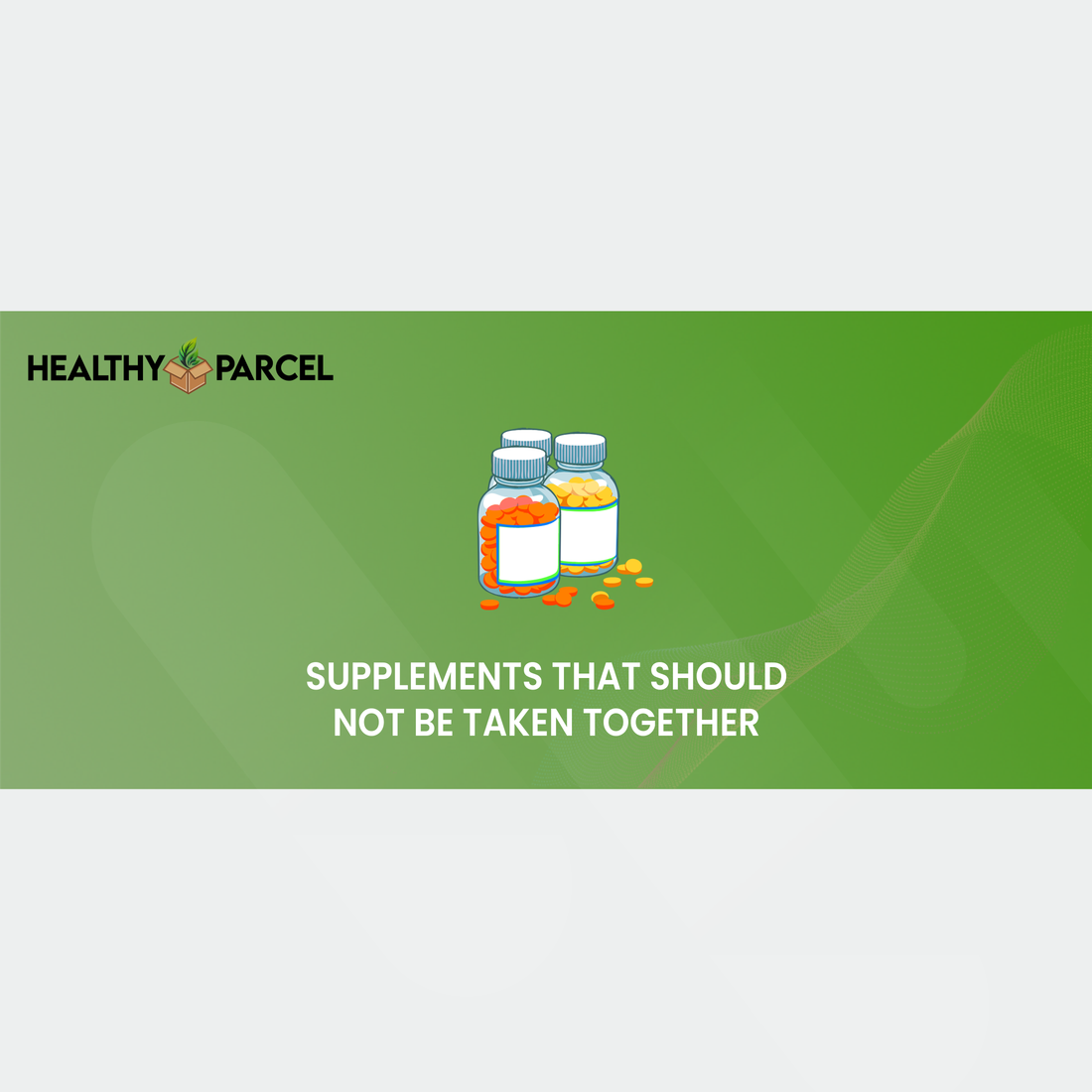Supplements can be a great way to boost your health and well-being. From vitamins and minerals to herbal extracts and protein powders, there's a wide variety to choose from. However, while supplements offer many benefits, it's important to be aware that some combinations can have negative effects on your health. This article will explore which supplements shouldn't be taken together to ensure you stay safe and get the most out of your supplementation routine.
Understanding Supplement Interactions

Supplement interactions happen when two or more substances affect each other's absorption, metabolism, or overall effectiveness. Some interactions have clear and measurable impacts, while others are based on limited research or theoretical concerns. Regardless, it's always best to be cautious and consult a healthcare professional before mixing supplements.
Now, let's look at some common supplement combinations to avoid:
Calcium and Iron

Taking calcium and iron together can interfere with their absorption. These minerals compete for absorption, especially when taken in large amounts or through supplements. This competition can reduce iron absorption, potentially leading to iron deficiency, particularly in those with high calcium intake or those at risk of iron deficiency. To optimize absorption, it's generally recommended to take calcium and iron supplements a few hours apart and with different meals. Consulting a healthcare professional can help determine the best timing and dosage for your needs.
Zinc and Copper

Zinc and copper are essential minerals that must be balanced carefully. High doses of zinc can lead to copper deficiency, while too much copper can impair zinc absorption. Some supplements are designed to maintain this balance, but it's still wise to consult a healthcare professional to determine the right dosages and avoid potential issues.
Vitamin E and Blood Thinners

Vitamin E is a potent antioxidant that protects cells from damage. However, high doses of vitamin E can increase the risk of bleeding when taken with blood thinners like warfarin. If you're on blood-thinning medications, talk to your healthcare provider before adding vitamin E to your regimen to ensure it's safe for you.
Licorice Root and Diuretics or Blood Pressure Medications

Combining licorice root with diuretics or blood pressure medications can be risky. Licorice root contains glycyrrhizin, which can raise blood pressure and cause potassium loss while inhibiting cortisol breakdown. This can counteract the effects of diuretics or blood pressure medications, reducing fluid elimination and increasing blood pressure. To avoid these complications, consult your healthcare provider before using licorice root with these medications.
Vitamin K and Anticoagulants

Combining vitamin K with anticoagulants, like warfarin (Coumadin), can present significant challenges. Anticoagulants work by inhibiting vitamin K's role in blood clotting, so consuming large amounts of vitamin K from food or supplements can reduce their effectiveness. This can lead to unstable clotting and an increased risk of bleeding or clot formation. To manage this interaction, it's crucial to consult a healthcare provider to balance your diet and vitamin K intake while maintaining the desired anticoagulation effects. Regular monitoring of blood clotting parameters and open communication with healthcare professionals are essential for effective management and optimal treatment outcomes.
Vitamin C and Vitamin B12

While taking vitamin C and vitamin B12 together usually isn't problematic, high doses of vitamin C can potentially interfere with vitamin B12 absorption. If you have a vitamin B12 deficiency or are taking B12 supplements, consider taking them at different times from high-dose vitamin C to ensure optimal absorption. Consulting with a healthcare professional can help you determine the best timing and dosage for taking these vitamins to meet your specific needs.
Ginseng and Stimulants
Ginseng is a popular herbal supplement known for boosting energy, cognitive function, and overall well-being. However, combining ginseng with stimulants like caffeine or certain prescription medications can increase the risk of side effects such as nervousness, irritability, and an elevated heart rate. If you're taking stimulant-based medications, it's advisable to avoid ginseng or consult your healthcare professional before use to avoid potential adverse effects.
Safe Supplement Use

Supplements can enhance various aspects of health, but it’s crucial to be mindful of potential interactions when combining different ones. To stay safe and get the most benefit from your supplements, consult a healthcare professional or a registered dietitian. They can provide personalized advice based on your specific needs and health conditions.
Everyone’s body is different, so what works for one person might not work for another. By staying informed and seeking professional guidance, you can make better decisions about your supplement routine and support your overall health and well-being.
Disclaimer
This article is for informational purposes only and should not replace professional medical advice. Always consult a qualified healthcare provider before starting or stopping any supplements or making changes to your current medication regimen.

